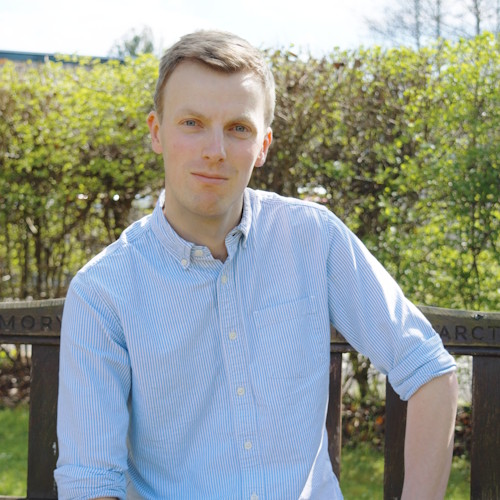Global impacts of climate extremes in the polar regions: is Antarctica reaching a tipping point?
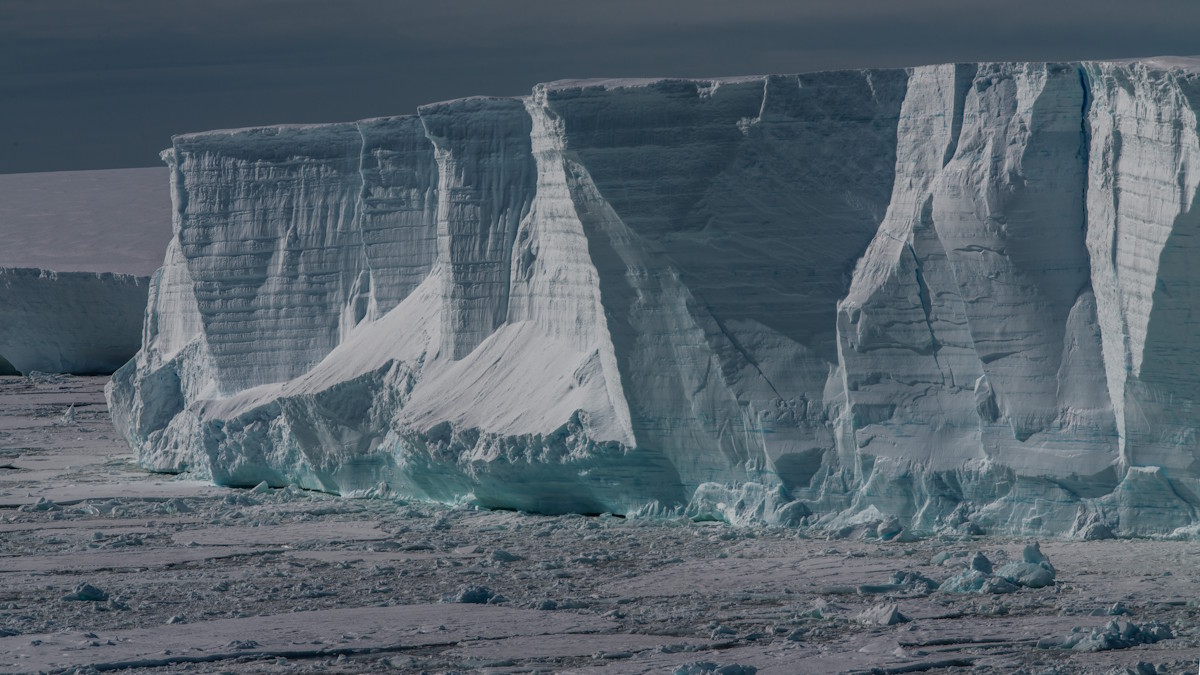
Discussion meeting organised by Professor Katherine Hendry, Dame Jane Francis DCMG FRS, Professor Michael Meredith, Professor Geraint Tarling, Dr Alexander Brearley, Professor Dominic Hodgson, and Dr Peter Davis.
The past two years have witnessed unprecedented extremes in the Antarctic linked to climate change, including exceptionally low winter sea ice and accelerated melting of ice. This meeting will bring together scientists and stakeholders for an urgent discussion on what we know about these recent events, whether they represent a climatic tipping point, and what the global impact of crossing such a threshold will be.
Programme
The programme, including speaker biographies and abstracts, will be available soon. Please note the programme may be subject to change.
Poster session
There will be a poster session from 5pm on Monday 29 September 2025. If you would like to present a poster, please submit your proposed title, abstract (up to 200 words), author list, and the name of the proposed presenter and institution no later than 31 August 2025.
Attending the event
This event is intended for researchers in relevant fields
- Free to attend
- Both virtual and in-person attendance is available. Advance registration is essential. Please follow the link register
- Lunch is available on both days of the meeting for an optional £25 per day. There are plenty of places to eat nearby if you would prefer to purchase food offsite. Participants are welcome to bring their own lunch to the meeting
Enquiries: Scientific Programmes team.
Organisers
Schedule
Chair

Professor Mike Meredith
British Antarctic Survey, UK

Professor Mike Meredith
British Antarctic Survey, UK
Professor Michael Meredith is an ocean/climate scientist at the British Antarctic Survey (BAS), and Professorial Fellow in Oceanography at Murray Edwards College, University of Cambridge. He created and led the Polar Oceans team at BAS, which has research foci on determining the role of the polar oceans on global climate, the ice sheets, and the interdisciplinary ocean system. He is a Fellow of the Royal Meteorological Society and the American Geophysical Union, and a NERC Individual Merit Promotion (Band 2) scientist. He was the inaugural chair of the Southern Ocean Observing System, and served as Coordinating Lead Author for the IPCC Special Report on Oceans and Cryosphere in a Changing Climate. In 2018, Michael was awarded the Tinker-Muse Prize for Science and Policy in Antarctica, and the Challenger Medal for contributions for Marine Science. In 2021, Michael was elected to serve as President of the Challenger Society for Marine Science, the UK's pre-eminent learned body for research of the ocean.
| 09:00-09:10 |
Welcome by the Royal Society and organising committee
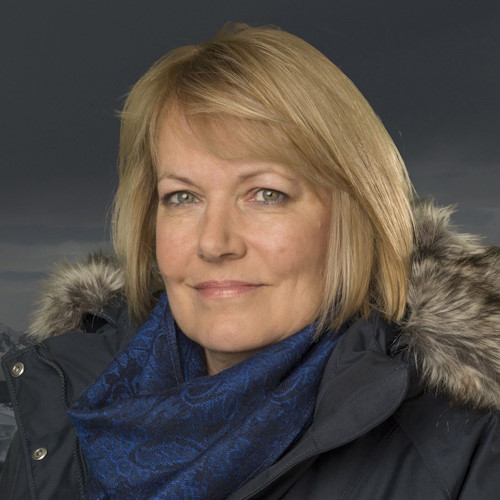
Dame Jane Francis FRS DCMGBritish Antarctic Survey, UK 
Dame Jane Francis FRS DCMGBritish Antarctic Survey, UK Jane is Director of the British Antarctic Survey. She is involved with international polar organisations, such as the Antarctic Treaty and European Polar Board, and on several advisory boards of national polar programmes. Jane Francis is a geologist by training, with research interests in past climates, especially the change from greenhouse to icehouse climates in the polar regions over the past 100 million years. She has undertaken over 15 scientific expeditions to the Arctic and Antarctica in search of fossil forests and information about climates of the past. Jane was appointed Dame Commander of the Order of St Michael and St George (DCMG) in recognition of services to UK polar science and diplomacy. She was awarded the UK Polar Medal, the Royal Geographical Society’s Patron’s Medal, the 2022 Prince Albert II of Monaco Foundation Award for Planetary Health and is a Fellow of the Royal Society. |
|---|---|
| 09:10-09:30 |
Setting the scene: why extreme events and why Antarctica?

Professor Martin SiegertUniversity of Exeter, UK 
Professor Martin SiegertUniversity of Exeter, UK Martin Siegert is a glaciologist, geophysicist and climate scientist. He uses geophysical measurements to investigate the flow and form of large ice sheets, and to understand processes operating in the past, now and in the future. He has published on subglacial environments, including on subglacial lakes, and on the history of the Antarctic ice sheet and continent. He has been a UK delegate to SCAR, and has led several SCAR activities and programmes. He was awarded the 2013 Martha T Muse Prize for Antarctic Science and Policy. He led the Grantham Institute at Imperial College London between 2014 and 2022 and is now Deputy Vice Chancellor (Cornwall) at Exeter University. |
| 09:30-09:50 |
The ocean’s role in global climate: state of play in Antarctica
The increased trapping of heat by greenhouse gases has disrupted Earth’s climate balance — more energy now enters the atmosphere than escapes back into space. Since the mid-20th century, over 90% of this excess energy has been absorbed by the ocean, driving widespread ocean warming. In situ ocean observations — particularly since the early 2000s — and climate model simulations show that the Southern Ocean dominates global ocean heat uptake, absorbing up to three-quarters of this excess heat flux. The warming has far-reaching climatic implications for melt of Antarctic ice shelf and ice sheet, sea level rise, and remote circulations such as the intertropical convergence zone and tropical ocean-atmosphere circulations, which affect extreme weathers, agriculture, and ecosystems. This presentation provides insights into the role of the ocean in Earth climate, its particular role in the Southern Ocean, which enfolds the interconnectivity of the ocean to the entire climate system and draws on recent extreme and unusual change observed in this ocean area. 
Dr Karina Von SchuckmannMercator Ocean, France 
Dr Karina Von SchuckmannMercator Ocean, France Karina von Schuckmann (Dr., HDR) is Senior Advisor, Ocean Science for Policy, at Mercator Ocean International in France. Passionate about the ocean, she is interested in understanding the role of the ocean - and its interactions - in the Earth's climate system, its changes and the underlying processes involved. She is a specialist in the Earth's heat inventory, which is to a large extent (~90%) determined by heat storage in the ocean. She is, amongst others, the director of the Copernicus Ocean State Report and was the lead author of the IPCC SROCC and AR6 reports and the upcoming AR7 report; she is an author for the WMO State of the Climate, World Ocean Assessment and the IOC-UNESCO Ocean Report. She is a member of several international expert groups on climate science. She is a member of the European Academy of Sciences, and she received in 2023 the French Academy of Sciences Climate Prize. |
| 09:50-10:10 |
Extreme events in the Antarctic cryosphere: state of play
Recent decades have seen a series of extreme events in the Antarctic cryosphere. Amongst these have been collapse of ice shelves, surface melting and ponding on margins of the ice sheet, and large snowfall anomalies. Some of these events have been linked in cascades with links to extreme events in the ocean and atmosphere, and themselves have impacts felt beyond the cryosphere. The geological record of ice sheets provides evidence of other extreme events that affected the Antarctic cryosphere, such as abrupt thinning and retreat intervals. Here we provide a summary of the state of knowledge of Antarctic cryosphere extreme events, including an update of improvements in understanding, and assessments of events occurring since the Siegert et al (2023) paper on Antarctic Extreme Events. 
Professor Michael BentleyDurham University, UK 
Professor Michael BentleyDurham University, UK Michael Bentley is a polar geoscientist with wide research interests but a core focus on the past and future behaviour of the Antarctic Ice Sheet, and on trying to reduce uncertainty in projections of future risk of sea level rise. He is particularly interested in how the Antarctic Ice Sheet has responded to period of climate warming, and have undertaken over 20 polar field seasons, mostly using geomorphology and innovate dating techniques to tackle the problem. |
| 10:10-10:30 |
Abrupt transition of the multi-decadal Antarctic Sea ice state and the ocean's role
Prior to 2016, Antarctic Sea ice extent exhibited a sequence of record maxima, followed by a rapid decline in 2015/16, and record minima since. In this presentation, I will discuss most recent evidence that this sudden ice loss marks an abrupt transition from a high to a low state that cannot be explained by year-to-year variability and emerges from a multi-decadal (forced or natural) signal accompanied by non-linear ice-ocean processes. This state transition was preceded by an increasing persistence and variance of the anomalies, reminiscent of abrupt transitions in complex dynamical systems, which is a currently ongoing discussion in literature. Further evidence shows that during this preconditioning phase, the sea ice anomalies shifted from a predominantly regional and seasonal to a largely circumpolar and interannual regime. This shift is likely arising from an increased connectivity between the surface and subsurface ocean, yielding a stronger influence of upwelling, warmer deep waters on the sea ice starting in 2015. The increased connectivity is connected to an increased surface salinity that appears to vary in the high latitude on multi-decadal time scales based on historical oceanographic data. These data also suggest a long-term warming of circumpolar deep water, which is likely a signal associated with the anthropogenic forcing and has the potential to melt the sea ice. Therefore, based on sea ice and ocean data, I will argue that the observed transition is a stepwise response to the anthropogenic forcing, modified by natural multi-decadal variability. 
Professor Alexander HaumannAlfred Wegener Institute, Germany 
Professor Alexander HaumannAlfred Wegener Institute, Germany Alex Haumann studied Geosciences (Major in Geography) at the University of Basel and Climate Physics at Utrecht University. In 2017, he completed his PhD thesis at ETH Zurich on the Southern Ocean response to recent changes in surface freshwater fluxes, for which he received the ETH Medal and the Prix de Quervain. Subsequently, he received a Postdoctoral Research Fellowship to work at the British Antarctic Survey and at Princeton University to deepen his knowledge on the Southern Ocean and to collaborate in major international research programs. He then received an ERC Starting Grant and a Helmholtz Young Investigator Group, to start a new joint research group between LMU and the Alfred Wegener Institute in 2023 to study Southern Ocean–climate interactions. He is a member of the Southern Ocean Observing System (SOOS) Scientific Steering Committee, the CLIVAR/CliC/SCAR Southern Ocean Region Panel, and co-lead coordinator of the international Antarctica InSync program. |
| 10:30-11:00 |
Discussion
|
| 11:00-11:30 |
Break
|
Chair

Dr Tom Bracegirdle
British Antarctic Survey, UK

Dr Tom Bracegirdle
British Antarctic Survey, UK
Dr Tom Bracegirdle is deputy Science Leader of the Atmosphere, Ice and Climate Team at the British Antarctic Survey (BAS). After completing a PhD in Meteorology in 2006 from the University of Reading, Dr Bracegirdle has been conducting research on polar climate and atmospheric dynamics at BAS. His main interests are polar storms and extreme weather events, large-scale atmospheric circulation, troposphere-stratosphere interactions, climate model evaluation, and quantifying and reducing uncertainty in climate model projections. He currently leads a major NERC-funded project 'Drivers and Impacts of Extreme Weather Events in Antarctica' (ExtAnt). He also has leading roles internationally in the Scientific Committee on Antarctic Research (SCAR) and European Climate Research Alliance (ECRA). More broadly, he is involved in a number of activities aimed at communicating the implications of polar climate change to the wider community, ranging from policymakers to the general public.
| 11:30-11:50 |
Extreme events in the Antarctic atmosphere: regional-impacts with global implications
Weather and climate conditions over Antarctica are among the most extreme and variable on Earth. Over the ice sheet, daily temperature anomalies of 10-15°C are a frequent occurrence, while over middle latitudes, such anomalies would often be record-setting. Thus, "extreme" climate events in the Antarctic are truly remarkable. In this delicately balanced polar environment, where snow versus rain or temperatures just below versus just above the freezing point are crucial to its stability, such extreme events can have severe impacts that may lead to tipping points being passed. Over the past decade, our understanding of extreme weather and climate events in Antarctica, across a range of timescales has grown tremendously. Multiple new record-setting, or even record shattering, high-temperature and high-precipitation events have occurred all the main regions of Antarctica, from low-lying regions on the Antarctic Peninsula to the high elevation interior of the ice sheet. Recent studies have highlighted the crucial role of such extreme precipitation events (comprising just a few days of the year) in dominating Antarctica's annual surface mass balance, and in turn, Antarctica's year-to-year contribution to global sea level rise. Extreme precipitation events often occur with "atmospheric rivers", which also bring extreme warmth as the moist airmasses often originate from warm lower latitudes. Over low-lying coastal ice shelves, temperatures can and do rise above freezing during such events, causing surface melt, which is a major concern for for ice shelves that are close to breaking point. Current research is shedding new light on the drivers of these extreme events - with growing evidence that teleconnections stemming from tropical variability play a key role - along with the range of impacts, including the compounding role of anthropogenic climate change. However, significant unknowns still exist. This talk will set the scene for discussions on the impacts of extreme atmospheric events across different disciplines and their role in pushing parts of the Antarctic environment past major tipping points, wait far-reaching global consequences. 
Dr Kyle ClemVictoria University of Wellington, New Zealand 
Dr Kyle ClemVictoria University of Wellington, New Zealand Kyle Clem is a Senior Lecturer in Climate Science at Victoria University of Wellington. His research focuses on Southern Hemisphere climate dynamics, with a particular interest in tropical-Antarctic teleconnections. He uses observations and climate model simulations to examine the role of tropical convection in triggering large-scale atmospheric circulation patterns that result in extreme weather and climate events in Antarctica. One key area of research is determining what mechanisms generate atmospheric circulation patterns that transport extreme heat and moisture from sub-tropical latitudes to Antarctica, as these are often the most impactful events in terms of extreme temperature, precipitation, and surface melt. These patterns often occur from Rossby waves forced from tropical variability, highlighting that climate change and its impacts are globally interconnected, and what happens in the tropics can have major implications for Antarctica. Kyle serves as the Editor for the annual State of the Climate Report on Antarctica and the Southern Ocean, is the lead-author of the Meteorology and Climate of Antarctica chapter in the recently published Meteorology of the Southern Hemisphere monograph, and is a member of the SCAR AntClimNow Research Programme. |
|---|---|
| 11:50-12:10 |
Extreme events and Antarctic ecosystems: setting the scene
Antarctic ecosystems are of global significance. Not only do they contribute to some of the most uniquely rich, endemic and productive ecosystems on Earth, but they are also integral to fisheries and global climate regulation. Polar species - whether pelagic or benthic, terrestrial or marine, sea-ice associated or open water, plant or animal - face ongoing impacts from long-term climate change and from other anthropogenic stressors (eg fishing, non-indigenous species and human activities). Now they face an additional and growing threat from extreme climate and weather events such as heatwaves, sea-ice anomalies and ice scour, snowstorms, increased rainfall, wind and drought. Using examples from both terrestrial and marine Antarctic ecosystems, we discuss the types of extreme events that have and are likely to continue to cause ecological impacts. In doing so, we highlight the sensitivities to environmental change that occur at individual, population, assemblage and ecosystem levels. We also identify major knowledge gaps in terms of understanding responses, including for the keystone species Antarctic krill, as well as the global ramifications for ocean nutrient supply and carbon sequestration. As extreme events are predicted to intensify in frequency and magnitude, we must look beyond current methods of post-event reporting to the development of early warning systems and continual monitoring. Implementing this will require bold, climate-smart management that is underpinned by research which created a step change in our baseline understanding of climate-change impacts beyond long-term means, and which incorporates interactions, thresholds, forecasts and contingencies at multiple temporal scales. 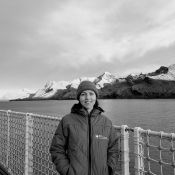
Dr Jennifer FreerBritish Antarctic Survey, UK 
Dr Jennifer FreerBritish Antarctic Survey, UK Jen Freer is an ecologist within the Ecosystems Team at the British Antarctic Survey and a Research Associate of Darwin College, Cambridge. She is interested in how the 3-dimensional environment of the ocean influences the distribution and biogeography of polar marine species. She typically uses data-driven models to understand the relationship between species and their environment, and to predict their distribution into new areas or under future climate conditions. Jen has applied these methods to many species including Arctic copepods and Antarctic krill. Jen co-leads the ecosystems work package of the NERC funded National Capability programme BIOPOLE, and the modelling working group of a new SCAR (Scientific Committee on Antarctic Research) Fish Action Group, SCARFISH. More broadly, Jen has been involved in a number of creative storytelling projects from podcasts to science-poetry workshops, aiming to increase people's sense of connectedness to polar and deep-sea environments. |
| 12:10-12:30 |
Discussion
|
Chair

Professor Andrea Burke
University of St Andrews, UK

Professor Andrea Burke
University of St Andrews, UK
Professor Andrea Burke is a climate scientist in the School of Earth and Environmental Sciences at the University of St Andrews. Her research focuses on the forcings and mechanisms of natural climate and carbon cycle change through geochemical records of past climatic events. She received her PhD in Geochemistry at the MITWHOI Joint Program in Oceanography in 2011. Following this, she was a Stanbeck Postdoctoral Fellow in Environmental Science at the California Institute of Technology (Caltech) for two years before starting a faculty job at the University of St Andrews in 2014, where she set up a new isotope geochemistry facility. In 2023, she was awarded an ERC Consolidator Grant, and last year was promoted to full professor.
| 14:00-14:20 |
Antarctic melt and sea-level rise during past warm periods
Warm periods in Antarctica over the past 3.3 Ma caused jumps in global sea level which are recorded in far-field sea level records and ocean proxies. The largest seas-level contributions from Antarctica during global warm periods were during the mid-Pliocene Warm Period and Marine Isotope Stages 31, 11 and 5e. A more recent example of a sub-millennial rapid sea-level jump is Meltwater Pulse 1A, which occurred around 14 ka BP during the last deglaciation. These past warm periods, their sea-level contributions and the most recent sea-level jump are policy-relevant as they provide accessible examples of how the Antarctic Ice Sheet responded to past warm-than-present global temperatures, comparable to those projected for the coming decades to centuries. Understanding past ice-sheet sensitivity to climate change also informs process-based models which project Antarctic ice-sheet response to future climate change. In this talk I will discuss the most recent research into global mean sea-level rise during warm periods of the past 3.3 Ma and the contribution of Antarctic mass loss to mean sea-level rise during this period. I will also consider the Antarctic contribution to periods of rapid sea-level rise during the last deglaciation (including Meltwater Pulse 1A) and ongoing debates around Antarctic contribution to Late Holocene, pre-industrial global mean sea-level change. 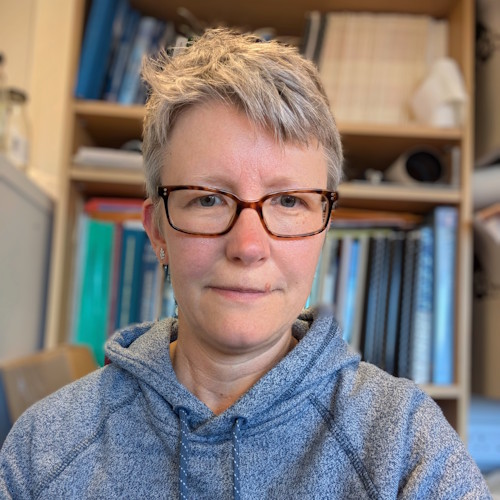
Professor Sarah WoodroffeDurham University, UK 
Professor Sarah WoodroffeDurham University, UK Sarah Woodroffe is a Professor of Physical Geography at Durham University. Her research is focused upon reconstructing past sea level changes using microfossils, in order to answer questions about ice sheet history, crustal response to surface loading and predictions of future sea level change in vulnerable coastal areas. She works on sea level records from key locations far from the centres of former glaciation (eg Indian Ocean, Australia, South Africa) which provide information on the long-term melting histories of the large ice sheets of Greenland and Antarctica. Her research aims to enhance accuracy and precision of sea-level reconstructions and to allow development of sea-level records from historically poorly studied locations such as low and high altitudes. |
|---|---|
| 14:20-14:40 |
Ice cores as archives of extreme and abrupt climate change in Antarctica
Ice cores are unparalleled records of past climate change. As windows into the past they contextualize anthropogenic climate change, offer glimpses of future climate through partial analogues, and provide a proving ground to test our models under very different and sometimes extreme climate states. In this talk I will present some recent advances in our understanding of past climate variability from Antarctic ice cores with a particular focus on abrupt climate change and past warm periods. First, I will briefly review the challenges associated with extracting the signal of anthropogenic climate change from the background, natural variability recorded by ice cores over the last millennium. Despite the difficulties in disentangling natural and anthropogenic climate change in Antarctica, a critical point has recently emerged that climate models underestimate both modes of variability. Second, I will analyse past intervals of relatively warm and stable climate (interglacials) in Antarctica to provide a framework to discuss what could be considered “extreme” states of climate from the ice core perspective. Here, the ice core record yields several partial analogues for future climate change in Antarctica. In particular, temperature “overshoots” at the onset of some interglacials (associated with rapid, yet modest rises in greenhouse gases) offer some of our best opportunities to study the response of Antarctica to intervals of elevated temperature. Finally, I will highlight recent ice core studies that provide strong evidence for a centennial-scale retreat of the West Antarctic ice sheet in the Weddell Sea region during the early Holocene (about 8,000 years ago). This retreat is thought to be driven by a rapid ungrounding and most likely indicates a type of tipping point behaviour that has also been simulated by some models. If this same type of tipping point is breached in other regions of Antarctica currently susceptible to ungrounding, such as the Amundsen Sea, it is would greatly increase the sea-level contribution from Antarctica we will have committed to over the coming centuries to millennia. 
Dr Thomas BauskaBritish Antarctic Survey 
Dr Thomas BauskaBritish Antarctic Survey Thomas Bauska is an ice core scientist who specializes in reconstructing past changes in greenhouse gases from polar ice. His research aims to use past climate and carbon cycle changes to inform projections of the future. He has a B.S. in Geophysical Sciences from the University of Chicago and a Ph.D. in Geology and Oceanography from Oregon State University. After a postdoc at the University of Cambridge, he joined the British Antarctic Survey as a Royal Society University Research Fellow where he established a laboratory focused on novel methods of ice core gas analysis. Over his career he has have taken part in multiple ice coring expeditions to the polar regions. In addition to his research, he teaches at the University of Cambridge as an Affiliated Lecturer in the Department of Earth Sciences. |
| 14:40-15:00 |
Rapid reconfiguration of Southern Ocean circulation, biogeochemistry, and climate
Observational constraints on how the Southern Ocean might evolve in a changing climate are critical. Despite substantial recent progress, direct measurements of this region span only a handful of decades, thus capturing a limited range of variability. Paleoceanographic reconstructions have the potential to help address this. In this talk, I will highlight recent progress in our understanding of how Southern Ocean circulation and biogeochemistry operate under altered climate conditions based on an expanded and enhanced paleo dataset. Critical lessons from the past include:
Continued work to better link paleo insights with modern conceptual understanding and modelling now offers real potential to capitalise on the promise of paleo to help inform our future. 
Dr James Rae

Dr James RaeDr James Rae is a geochemist and climate scientist in the School of Earth and Environmental Sciences at the University of St Andrews. His research uses the geochemistry of sediments, ice, and fossils to reconstruct past climates. Much of his work has focussed on development of the boron isotope proxy for ocean pH and atmospheric CO2. Particular interests include the climates of the ice ages, changes in ocean circulation, biomineralization in calcifying organisms, and reconstructing ocean pH and atmospheric CO2 over geological time. Before coming to St Andrews, James held a NOAA Climate and Global Change postdoctoral fellowship at Caltech and studied for his MSci at the University of Oxford and his PhD at the University of Bristol. His work has been recognised by the European Geosciences Union’s Outstanding Young Scientist Award in Biogeochemistry, election to the Young Academy of Scotland, and major national and international grant funding, including a €2M ERC grant to investigate long-term CO2 change. |
| 15:00-15:30 |
Discussion
|
| 15:30-16:00 |
Break
|
Chair

Professor Kate Hendry
British Antarctic Survey, UK

Professor Kate Hendry
British Antarctic Survey, UK
Professor Kate Hendry is a chemical oceanographer at the British Antarctic Survey, and an honorary professor at the Universities of Bristol and East Anglia. Her research interests surround the impact on marine nutrient cycling of climate change in the polar regions.
Kate has published over 90 papers in international journals, and has won almost £5M in grant funding as Principal Investigator, and collaborated on several other national and international projects. She won the Geological Society of London Bigsby Medal in 2025 for services to geosciences, the EAG Houtermans medal in 2016, and a Challenge Society fellowship in 2012.
Kate is Chair of Antarctic Science Ltd, which runs the journal Antarctic Science, and the Antarctic Science International Bursary Scheme. She is vice chair of the UK Arctic and Antarctic Partnership, and is the geosciences representative in the UK National Committee for Antarctic Research (UKNCAR). She is honorary secretary of the Challenger Society for Marine Science, and established their Equity, Diversity, Inclusivity and Accessibility working group.
Chair
Professor Anna Hogg
University of Leeds, UK
Professor Anna Hogg
University of Leeds, UK
| 09:00-09:20 |
How will ice shelf melting respond to a warming climate?
Ice shelves, the floating extensions of the Antarctic Ice Sheet, are melted from below by the ocean. Increased ice shelf melting is the main mechanism by which Antarctica currently contributes to global sea level rise. As melt rates are sensitive to temperature, salinity, and circulation in tiny pockets of the Southern Ocean, predicting how they might respond to climate change is not straightforward. Projecting future ice shelf melting is at the forefront of coupled Earth system modelling, as most climate and ocean models still do not include ice shelves at all. This talk will summarise what is and is not known about how ice-ocean interaction may respond to climate change. In some regions, such as the Amundsen Sea in West Antarctica, relatively warm ocean water already accesses the ice shelves. However, climate change is expected to make these regions warmer still, by increasing the volume of warm water flowing onshore. Other regions, such as Antarctica's largest ice shelves, the Ross and Filchner-Ronne, are currently bathed in cold water and melt rates are stable. Unfortunately, models predict that with sufficient climate change, these cavities could suddenly flip into a warm state similar to the Amundsen Sea. While some changes are likely already committed, other changes may or may not be triggered, depending how much the climate warms. Therefore, the trajectory of future carbon emissions will likely have a large impact on Antarctica's long-term contribution to sea level rise. 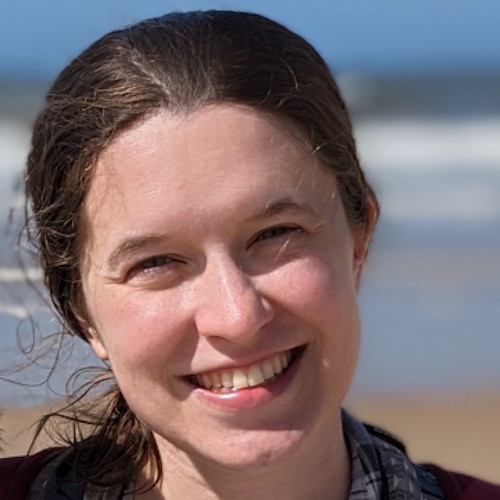
Dr Kaitlin NaughtenBritish Antarctic Survey, UK 
Dr Kaitlin NaughtenBritish Antarctic Survey, UK Kaitlin Naughten is an ice, ocean, and climate modeller at the British Antarctic Survey. She develops models to simulate interactions between the Southern Ocean, the Antarctic Ice Sheet, and the broader climate system. Kaitlin's research focuses on how ice shelf-ocean interactions change in responds to a warming climate. She studies warm ice shelf cavities which could get warmer (eg the Amundsen Sea) as well as cold cavities which could suddenly flip to a warm state (eg the Ross and Filchner-Ronne Ice Shelves). Her research on West Antarctic ice shelf melting was the #7 most covered climate study of 2023 by the international media (Carbon Brief). Kaitlin is a member of the core development team for the UK Earth System Model, the world's first global climate model to include an Antarctic Ice Sheet fully coupled to the ocean. |
|---|---|
| 09:20-09:40 |
Antarctic sea ice: future projections and uncertainties
Antarctic sea ice, after enjoying a period of sustained, steady growth, supplemented by several above average sea ice extents in winter and summer over the satellite-observed era has, since 2016, apparently transitioned to a period of sharply reduced sea ice extent (SIE), manifested by extremely low SIE in summer (2017, 2022, 2023, 2024, 2025) and extremely low SIE in winter 2023, 2024 and 2025 (projected). Such unexpected behavior of the Antarctic sea ice system is not reproduced in climate models, which may indicate some major deficiencies in our understanding and in the skill of projections. However, it has prompted the questions - is this a short-term change, or has there been a structural change in the sea ice system? Is this abrupt change associated with natural variability or a forced signal related to anthropogenic activities? To begin answer these questions, we place the present SIE variability within the context of SIE variability for the 20th century using an ensemble of SIE reconstructed using Bayesian statistics. We query the characteristics of the SIE to find out if the variability that we see fits the picture of structural change. Results indicate that there has been a structural change in the Antarctic sea ice system, specifically that SIE no longer reverts to the mean. Instead, it has become a system characterized by extremes. We discuss what that means for the future of Antarctic sea ice and the ecosystems which it supports and how certain are we about it. 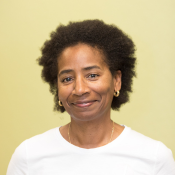
Professor Marilyn RaphaelUniversity of California Los Angeles, USA 
Professor Marilyn RaphaelUniversity of California Los Angeles, USA Professor Marilyn Raphael is a physical geographer interested in climate variability and change in the high latitude Southern Hemisphere. Her work focuses on Antarctic sea ice variability, specifically the way in which the sea ice and the largescale atmospheric circulation interact, thereby creating potential for prediction of Antarctic climate change at the seasonal, interannual and decadal timescales. The results of her research have implications for the Antarctic climate, global climate change and the global, societal response. Marilyn is a Professor of Geography at the University of California, Los Angeles and former President of the American Association of Geographers. Marilyn is also a Member of the US National Academy of Sciences, a Fellow of the American Academy of Arts and Sciences and a Member of the American Philosophical Society. She is co-Chair of the SCAR expert group, Antarctic Sea ice Processes and Climate (ASPeCt). In this role she promotes research on Antarctic sea ice observations and modeling and coordinates the efforts of the international science community bringing together expertise on the observational and modeling aspects of the climate. |
| 09:40-10:00 |
Back to the Future with atmospheric extreme events in Antarctica – their drivers, impacts and uncertainties
Climate change, in conjunction with human-induced pressures, has left no region untouched, including Antarctica. From 1992 to 2020, the Antarctic ice sheet lost ice mass at an average rate of 92 ± 2.2 gigatons per year, contributing to a global sea level rise of about 12 cm, mostly due to the West Antarctic Ice Sheet and the Antarctic Peninsula ice losses. Deep uncertainty exists regarding future Antarctic contribution to sea level rise with the potential for rapid, nonlinear responses due to marine ice sheet instability, marine ice cliff instability and hydrofracturing. The latter is enhanced by melt water and rainfall – the phenomena linked to extreme warming events already impacting Antarctic marginal zones and moving further inland. Many of these warming events are associated with atmospheric rivers, which are projected to roughly double in frequency by 2100 with an increase in precipitation delivering intense rain-on-snow and warm/moist air spiking surface melt and preconditioning ice shelf hydrofracturing and accelerated grounded ice loss. At the same time increased snowfall is also projected over Antarctica especially due to extreme weather events, offsetting dynamic mass loss. Thus, large uncertainty exists, and questions remain if with continued warming surface melt and rainfall bringing enhanced risk of hydrofracturing and ice-shelf loss will dominate the increase in snowfall and its accumulation inland. Increased magnitude and probability of occurrence of extreme events, along with their high impacts on the Antarctic surface mass balance and large future uncertainty require detailed understanding of the underlying large-scale, regional and local drivers, using comprehensive and high-resolution observations and modeling. In this presentation, I will discuss recent advances in our understanding of extreme weather events, particularly atmospheric rivers, their present-day drivers and impacts and future uncertainties. 
Dr Irina GorodetskayaCIIMAR - Interdisciplinary Centre of Marine and Environmental Research of the University of Porto, Portugal 
Dr Irina GorodetskayaCIIMAR - Interdisciplinary Centre of Marine and Environmental Research of the University of Porto, Portugal Irina Gorodetskaya is a polar meteorologist and climate scientist studying extreme weather events and atmosphere-ocean-cryosphere interactions in the polar regions. She has a PhD in Atmospheric Science from Columbia University (USA) and worked in France, Belgium and Portugal. Currently she is a principal researcher at the Interdisciplinary Centre of Marine and Environmental Research (CIIMAR), University of Porto. Participated in expeditions in the Arctic, over the Antarctic ice sheet and in the Southern Ocean, with ongoing measurement projects over the Antarctic Peninsula focusing on atmospheric rivers and their impacts. Contributing to major international initiatives, including the WMO’s Polar Prediction Project and its flagship activity, the Year of Polar Prediction (YOPP) and AntClimNow – SCAR research programme on near-term variability and prediction of the Antarctic climate system. She is part of the Scientific and National Coordination of the AntarcticaInsync – a globally coordinated scientific initiative bringing together observing and modeling systems to tackle Antarctic and Southern Ocean environmental change. Bringing science to society as a lead author of the Intergovernmental Panel on Climate Change (IPCC) 6th Assessment Report and an invited speaker and delegate to the UN Climate Change Conferences. |
| 10:00-10:30 |
Discussion
|
| 10:30-11:00 |
Break
|
Chair
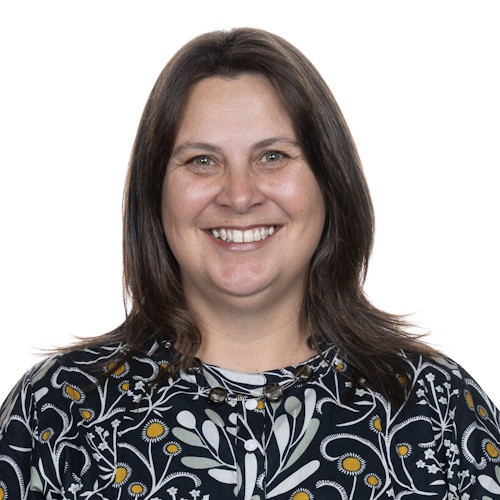
Professor Nerilie Abram
Australian Antarctic Division, Australia

Professor Nerilie Abram
Australian Antarctic Division, Australia
Professor Nerilie Abram is the Chief Scientist for the Australian Antarctic Program. Her research has used Antarctic ice cores to understand how Earth's climate behaved naturally in the past, and how human-caused climate warming is now changing Antarctica and its impacts on Australia. She has completed five expeditions to Antarctica, including leading the ice drilling camps for Australia Denman Terrestrial Campaign in 2023/24. Prior to commencing her role as Chief Scientist, she was based at the Australian National University and was a Deputy Director of the Australian Centre for Excellence in Antarctic Science. She was a coordinating lead author for the 2019 Intergovernmental Panel on Climate Change report into the Ocean and Cryosphere in a Changing Climate, and will also serve as a coordinating lead author for the IPCC 7th Assessment Report. In 2024 she was elected as a fellow of the Australian Academy of Science.
| 11:00-11:20 |
Decreasing importance of carbon-climate feedbacks in the Southern Ocean this century
The Southern Ocean CO2 sink has shown important variations in the recent past, with a reduction during the 1990s, a reinvigoration in the 2000s, and a levelling off emerging in the last decade. These decadal variations have been attributed in part to the increase in winds resulting from the depletion of stratospheric ozone, modulated in time and space by contributions from a range of thermodynamical processes. The presence of large decadal variations in the Southern Ocean CO2 sink during the recent past could suggest a potentially strong response to future climate change. However, this is unlikely to be the case as several factors combine to dampen the response of the Southern Ocean CO2 sink to climate change this century. First, the expected healing of the ozone layer leads to a reversal of its intensifying effect on winds. As a result, the influence of projected changes in mixed-layer depth on carbon nearly cancels that of projected changes in overturning circulation. In addition, the influence of changes in physical dynamics on CO2 diminishes with the level of warming due to the reduction in the vertical gradient of dissolved inorganic carbon. Overall, the carbon-climate feedback originating from the Southern Ocean decreases this century in a warming climate and becomes increasingly dominated by the effect of warming on CO2 solubility, which is well represented in models. The response of marine ecosystems to projected changes in nutrients driven by changes in ocean dynamics is unlikely to alter this conclusion, but it would influence the equilibrium CO2 level in the atmosphere in the long-term. The potential influence of more complex ecosystem-driven changes on the Southern Ocean CO2 sinks this century and beyond has not been thoroughly tested with models. It would benefit from the development and use of a new generation of Ocean System Models (OSMs) designed to address marine challenges, maintained by leading oceanography institutes, and grounded in the best available observations. 
Professor Corinne Le Quéré CBE FRSUniversity of East Anglia, UK 
Professor Corinne Le Quéré CBE FRSUniversity of East Anglia, UK Professor Corinne Le Quéré CBE FRS, is Royal Society Research Professor at the University of East Anglia, where she conducts research on the interactions between the carbon cycle and climate change, particularly those mediated by the world’s oceans. She leads two projects in the NERC’s programme on the Role of the Southern Ocean in the Earth System (RoSES), one examining Southern Ocean CO2 variability in recent decades, one exploring its evolution this century. More broadly, she spearheaded the development of marine carbon-cycle models with new ways to represent plankton diversity and ecology. She also led for over a decade the annual update of the ‘global carbon budget’, an international effort to keep track of global carbon emissions and their fate in the environment, and authored three assessment reports of the Intergovernmental Panel on Climate Change (IPCC). |
|---|---|
| 11:20-11:40 |
Antarctic climate change impacts on marine vulnerable marine ecosystems
Sponge beds and coral gardens are dominant Antarctic deep-sea ecosystems. These vulnerable marine ecosystems (VME) are rarely studied and hard to maintain ex situ making understanding their responses to climate change a substantial logistical challenge. The outcomes of the few experiments undertaken are mixed but overall predictions for these ecosystems are seemingly poor. Known climate change (marine temperature and water acidity changes) impacts include necrosis, reduced fecundity, and weaker skeletons. Habitat suitability modelling infers the envelope for life for this organisms under future climate change scenarios is greatly reduced, a smaller area of Earth will be suitable for their existence. Community network analysis predicts wide scale impacts for the most abundant deep-sea fauna should some sponge species cease to exist. Worryingly, with the measured in situ water chemistry changes of ocean acidification and reduced oxygen, there has been rapid deterioration of sponge beds over only a six-year time scale in Canadian waters. Climate change impacts in deep Antarctic waters are harder to monitor and predict. 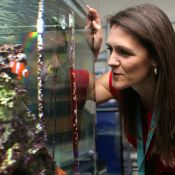
Dr Michelle TaylorOcean Census and University of Essex 
Dr Michelle TaylorOcean Census and University of Essex Dr Michelle Taylor’s research focuses on how well-connected populations in the deep sea are genetically across depth, areas, and time – looking at their evolutionary relationships, their community structures, and what drives where they thrive. She is Head of Science for Ocean Census, a Nekton-The Nippon Foundation initiative to accelerate marine species discovery. And she runs a lab group at the University of Essex that has a focus on marine population genomics, video surveying for community analyses, and habitat suitability modelling. Her favourite taxa are corals, and she has described and discovered many of them globally on the dozen expeditions she has partaken in and led. Her PhD was undertaken on Antarctic deep-sea coral. Dr Taylor has worked at the universities of Imperial College, Oxford and Essex primarily but has grants and projects with several international academic institutions and is President of the Deep-sea Biology Society. |
| 11:40-12:00 |
The Antarctic contribution to future sea level rise
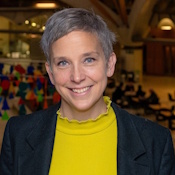
Professor Tamsin EdwardsKing's College London, UK 
Professor Tamsin EdwardsKing's College London, UK Professor Tamsin Edwards is a climate scientist specialising in quantifying the uncertainties of climate model predictions, particularly for the ice sheet and glacier contributions to sea level rise. She was a Lead Author of the Intergovernmental Panel on Climate Change (IPCC) Sixth Assessment Report published in 2021. |
| 12:00-12:30 |
Discussion
|
Chair
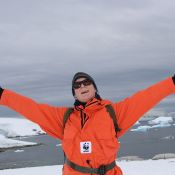
Mr Rod Downie
The Worldwide Fund for Nature, UK

Mr Rod Downie
The Worldwide Fund for Nature, UK
Rod leads WWFs Polar & Oceans work in the UK. He has worked in the polar regions for more than 25 years, initially at the British Antarctic Survey and for the last 13 years with WWF. Rod has undertaken 14 field seasons in Antarctica, where he spent a total of 2 ½ years living and working on the ice. He has also worked in the Canadian, Russian and Norwegian Arctic. He leads a wide portfolio of science and conservation projects ranging from krill and emperor penguins to polar bears and ‘Walrus from Space’. Rod serves as an advisor to the UK Government at the Antarctic Treaty, as well as sitting on numerous technical advisory bodies. He facilitated Arctic Voices, a series of dialogues between the UK Governments and indigenous Arctic leaders. He also represents WWF at the United Nations Framework Convention on Climate Change (UNFCCC). This expert panel will explore the policy implications of extreme events within the Antarctic Treaty System, focusing on how science can support policy requirements, and how policy needs to respond to the science.
| 13:30-13:50 |
Providing policy relevant scientific advice to the Antarctic Treaty System - the role of the Scientific Committee on Antarctic Research
The Scientific Committee on Antarctic Research (SCAR) initiates, develops and coordinates high quality international scientific research in the Antarctic region, and on the role of the Antarctic region in the Earth system. SCAR also provides objective and independent scientific advice to the Antarctic Treaty System and other bodies. The Antarctic Treaty Parties have made specific requests to SCAR for updates on climate change and its impacts on the Antarctic environment, which SCAR provides using the best available scientific information on climate change and its impacts, to support their decision-making. Warming and in the increased frequency, severity and duration of extreme events in the near term will mean that many terrestrial, freshwater, coastal and marine ecosystems are at very high or high risks of losing biodiversity (IPCC AR6). This underscores an urgent need for robust scientific advice to inform policy decision-making, particularly on the conservation of Antarctic biodiversity. Extreme climate and weather events such as record low sea ice extent, heatwaves and the collapse of ice shelves will also present new challenges for unique Antarctic ecosystems as well as for the management of human activities in Antarctica. In this talk we will showcase SCAR's work that synthesises complex scientific findings on climate extremes and their impacts, communicates accessible information, and delivers actionable advice to the Antarctic Treaty System, including through the regularly updates SCAR Antarctic Climate Change and the Environment reports. 
Chandrika NathSCAR, UK 
Chandrika NathSCAR, UK Dr Chandrika Nath has over 20 years’ experience of working at the science/policy interface in a wide variety of national and international contexts. A former glaciologist, she is currently Executive Director of the Scientific Committee on Antarctic Research (SCAR), the leading global organisation supporting collaboration in Antarctic Research and providing advice to the Antarctic Treaty System. With an international membership of 46 nations and 9 scientific unions, SCAR plays a leading role in facilitating international scientific collaboration in Antarctic Research, coordinating over 30 research groups across all disciplines and organising the Antarctic community’s most well attended international conference every two years. It also plays a key role in providing objective advice to the Antarctic Treaty Consultative Meeting, the Committee on Environmental Protection and the Commission for the Conservation of Antarctic Marine Living Resources (CCAMLR). Prior to joining SCAR, Dr Nath was Acting Head of the UK Parliamentary Office of Science and Technology (POST), an office providing scientific advice to Members of both Houses of Parliament. She has briefed UK policymakers on a wide range of areas spanning environment, energy, security, ICT and international development. Dr Nath has a keen interest in capacity building and has worked with parliaments and researchers across the world to support uptake of research evidence in policy-making. Prior to working for Parliament, Chandrika worked as a glaciologist at the British Antarctic Survey from 1998-2002. She has a PhD in High Energy Physics from Oxford University. |
|---|---|
| 13:50-14:10 |
Adapting Southern Ocean ecosystem-based fisheries management to extreme events
The Commission for the Conservation of Antarctic Marine Living Resources (CCAMLR) is responsible for the conservation of Antarctic marine ecosystems, yet extreme events - such as marine heatwaves and storms - are disrupting these ecosystems, posing new challenges to CCAMLR's ecosystem-based fisheries management approach. While some progress has been made by CCAMLR in considering extreme events, practical action is lacking. This review examines current progress in integrating extreme events into ecosystem-based management and identifies critical gaps in understanding, predicting and responding to such events. Recent studies have demonstrated that extreme events significantly impact species' habitats, distribution, and key demographic factors such as breeding success and mortality rates, making it essential to incorporate the consideration of such events into management strategies. Drawing on recommendations from a recent CCAMLR workshop, we proposed improved approaches to data collection and analysis, including the development of predictive models that enhance understanding of the impacts of extreme events. We explore the integration of extreme event data into fisheries monitoring, the need for adaptive management policies and prioritisation of long-term resilience, and the strengthening of collaboration among relevant scientific disciplines, stakeholders, and policymakers. A more comprehensive and dynamic approach that explicitly incorporates extreme events is crucial for ensuring the sustainable management of Antarctic marine ecosystems amid the challenges posed by climate change. 
Dr Rachel CavanaghBritish Antarctic Survey, UK 
Dr Rachel CavanaghBritish Antarctic Survey, UK Dr Rachel Cavanagh is an Ecosystem Scientist at the British Antarctic Survey (BAS) with over two decades of experience encompassing interdisciplinary research, international programme leadership and technical advice for policy. Rachel holds a BSc in Applied Zoology and PhD in Population Ecology, and before joining BAS was Executive Officer of the International Union for Conservation of Nature (IUCN) Shark Specialist Group, leading efforts in global shark conservation and management. With a strong interest in the role of science in informing policy, Rachel's current research is focused on integrating climate change considerations into marine conservation and management. Rachel is a Scientific Advisor on the UK delegation to the Commission for the Conservation of Antarctic Marine Living Resource (CCAMLR), Co-Chief Officer of the Scientific Committee on Antarctic Research (SCAR) Flagship Scientific Research Programme Near-term Variability and Prediction of the Antarctic Climate System and serves on SCAR's Standing Committee on the Antarctic Treaty System. |
| 14:10-14:30 |
Southern Ocean observations to meet policy and societal requirements
Antarctica and the Southern Ocean provide for the world’s human population in multiple ways. Effective governance, with adequate environmental protection, is required to sustain these services and functions, including climate regulation and the maintenance of global ocean health and productivity. Such governance must be underpinned by scientific evidence, much of which requires observational data from Antarctica and the Southern Ocean. The Southern Ocean Observing System (SOOS) is the leading international organisation coordinating the collection and dissemination of observational data from the Southern Ocean. By collaborating across geographic, disciplinary and career stage boundaries, SOOS enables and mobilises the international community to collect and use high-quality Southern Ocean data for scientific, policy and educational purposes. In this talk, I will outline the work that SOOS does in various policy spheres, including the Antarctic Treaty System, the Convention for the Conservation of Antarctic Marine Living Resources (CCAMLR), the UN Framework Convention on Climate Change (UNFCCC) and UN Oceans. I will highlight the importance of robust and representative data in underpinning evidence-based decision making and of taking an equitable and inclusive approach in these international contexts. I will also discuss some of the challenges and opportunities for scientists of all career stages engaging in the policy space. 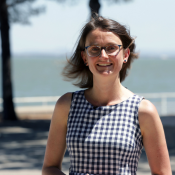
Dr Sian HenleyUniversity of Edinburgh, UK 
Dr Sian HenleyUniversity of Edinburgh, UK Dr Sian Henley is a Reader in Marine Science at the University of Edinburgh. She has a diverse range of research interests from climate and environmental change in the polar oceans to climate change impacts on children worldwide. Her research in the polar regions focuses on marine biogeochemistry and ecosystem functioning in both the Arctic and the Antarctic. Sian is active at the science-policy interface with a focus on Earth’s polar regions, making significant contributions to high-profile policy events such as the UN Climate Change Conferences COP26, COP27, COP28 and COP29 and the UN Ocean Conferences 2022 and 2025. Sian currently serves on the International Advisory Committee for the UN Ocean Decade Coordination Centre for the Southern Ocean Region, the UK National Committee for the Antarctica In Sync initiative, and was Co-Chair of the Southern Ocean Observing System (SOOS) 2022-2025. In addition to her wide-ranging research, Sian is a passionate lecturer, educator and communicator on issues around climate and environmental change and sustainable development. |
| 14:30-15:00 |
Discussion
|
| 15:00-15:30 |
Break
|
Chair
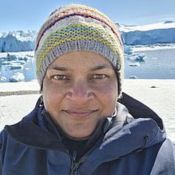
Dr Renuka Badhe

Dr Renuka Badhe
Renuka has a Masters in Environmental Science, and Land Economy, and a PhD that looked at the effects of climate change on Southern Ocean algal photo-physiology. Over the last 25+ years, she has worked in areas ranging from polar oceans to climate change, and at the science policy nexus, and the last 15 of these in leadership positions.
| 15:30-15:50 |
Intergovernmental panel on climate change
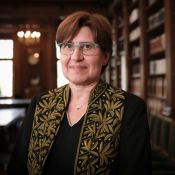
Dr Valérie Masson-DelmotteLaboratoire des Sciences du Climat et de l'Environnement, France 
Dr Valérie Masson-DelmotteLaboratoire des Sciences du Climat et de l'Environnement, France Dr Valérie Masson-Delmotte, 43, is a senior scientist at LSCE, Gif-sur-Yvette, France. Her research is focused on the documentation of past climate and water cycle variability, using water stable isotope records from natural archives as well as climate simulations, leading to 180 peer-reviewed publications. Her focus time scales vary from the intra-seasonal variability to glacial-interglacial timescales. She was a coordinating lead author of the IPCC 5th assessment report, Working Group 1. She is also very active in dissemination and outreach of climate sciences. |
|---|---|
| 15:50-16:10 |
Antarctic climate change and associated impacts embedded into policy relevant concepts discussed by IPCC WGII AR6, IPBES, and WBGU
Antarctic climate change affects the cryosphere as well as terrestrial and ocean life. Cryosphere impacts have global implications, by affecting the global ocean conveyor and shaping sea level rise. Research on organisms and ecosystems allows testing unifying principles of effect and their specific implications for Antarctic life. Climate change drivers in the ocean entail ocean warming, acidification and loss of oxygen due to warming and enhanced stratification. These drivers individually and together affect ocean life. While some approaches compare the effect sizes of these individual drivers, other approaches strive to develop an integrative view for more realistic ecological projections. Temperature emerges as a master variable shaping the functioning of all life forms. Such functioning depends on the thermal performance curve as a reaction norm characterizing individual species and their life stages. Those principles also explain species vulnerability to climate change. Overlapping thermal performance curve as a reaction norm characterizing individual species and their life stages. Those principles also explain species vulnerability to climate change. Overlapping thermal performance curves characterize the temperature range at which species can co-exist at ecosystem level. The talk will put the drivers and their impacts into context and address how ocean oxygen and CO2 play a role in the thermal tolerance and performance of marine animal species. These findings indicate high vulnerability of Antarctic systems and have implications for Antarctic policy. Current debate focuses on conservation and associated spatial planning needs. Increasing economic and tourism pressures emphasize the need for future considerations of wider concepts such as Climate Resilient Development. * Intergovernmental Panel on Climate Change, IPCC; Intergovernmental Science-Policy Platform on Biodiversity and Ecosystem Services, IPBES; German Advisory Council on Global Change, WBGU 
Professor Hans-Otto PörtnerAlfred Wegener Institute, Germany 
Professor Hans-Otto PörtnerAlfred Wegener Institute, Germany Hans-Otto Pörtner is a researcher in marine ecophysiology and the impacts of climate change. He has established theory and evidence on effects of climate warming, ocean acidification, and hypoxia on marine animals and ecosystems. His efforts focus on linking biogeography and ecosystem functioning to molecular, biochemical and physiological mechanisms shaping organism tolerance and performance. In October 2015 he was elected Co-Chair of IPCC Working Group II for its 6th assessment cycle. He is an elected member of the European Academy of Sciences, the German Advisory Council on Global Change and a Web of Science highly cited researcher 2018 award. |
| 16:10-16:30 |
Antarctic tipping points: implications for UK coastal sea-level rise and adaptation planning
Sea-level rise associated with warming of the climate system is characterised by long-term commitment for many centuries, with future ice sheet changes the dominant threat on these timescales. The current Environment Agency climate change allowances for UK sea-level rise by 2125 range from 1.0-1.6, depending on geographic region, with an H++ value of 1.9m for risk-averse decision makers (eg nuclear energy sector, long-lived infrastructure planning). However, poorly understood ice sheet instability processes in Antarctica could lead to global and UK sea-level rise of more than 10m by 2300, as highlighted in the most recent assessment report of the Intergovernmental Panel on Climate Change (IPCC). Even in the absence of such processes being triggered, the UK coastline is expected to see at least 1-2m of local sea-level rise by 2300, with strong regional variations. Given the large uncertainty in both global and UK sea-level rise, we present a flexible sea-level storylines framework that is designed to promote a risk-based assessment of future adaptation options in coastal planning. By combining our framework with a state-of-the-art UK flood model, we generate a first-order picture of the scale of the adaptation challenge under a range of future sea-level rise outcomes. Uncertainty in future projections, particularly those associated with Antarctic ice sheet instability processes, provide strong motivation for detailed observational monitoring and development of early warning indicators. 
Dr Matt PalmerMet Office Hadley Centre, UK 
Dr Matt PalmerMet Office Hadley Centre, UK Dr Matt Palmer is a Science Fellow at the Met Office Hadley Centre and Associate Professor in Climate Science at the University of Bristol. His expertise includes observations and projections of sea level change, Earth's energy budget and ocean subsurface observations. Matt led the sea level work for the UK National Climate Projections (UKCP18) that included development of pioneering multi-century sea-level projections in response to stakeholder needs. He has worked on a variety of international projects providing sea level projections and observational analysis for other parts of the world. Matt was a Lead Author on the latest Intergovernmental Panel on Climate Change report (IPCC AR6) where his contributions included leading the assessment of the global energy and sea level budgets. |
| 16:30-17:00 |
Discussion
|
| 17:00-17:15 |
Closing remarks
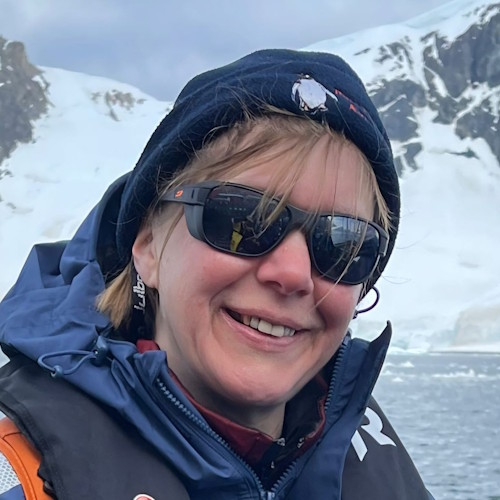
Ms Jane Rumble OBEForeign, Commonwealth & Development Office, UK 
Ms Jane Rumble OBEForeign, Commonwealth & Development Office, UK Jane Rumble joined the Polar Regions Department (PRD) in 2003 and has been Head of the Department since January 2007. She was appointed Commissioner to the British Antarctic Territory in February 2025. PRD leads on all Antarctic issues for the UK Government, and Jane is Head of the UK Delegation to the Antarctic Treaty Consultative Meeting (ATCM) and UK Commissioner to the Convention for the Conservation of Antarctic Marine Living Resources (CCAMLR). She also oversees the UK's engagement with the Arctic Council. Jane is the Senior Responsible Officer of the 'Blue Belt' programme to enhance marine protection measures around the UK Overseas Territories. A geographer by background, Jane is a Fellow of the Royal Geographical Society (RGS). Jane was made an OBE at the Queen's Birthday Honours in June 2018 for services to Polar science, marine conservation and diplomacy; and was made an honorary Doctor of Science by Leeds University in July 2018. In 2021, 'Rumble Point' was named in the Antarctic Peninsular. Jane received the RGS Back Award in 2023 for outstanding commitment to shaping public policy in Polar settings. |

.png)





